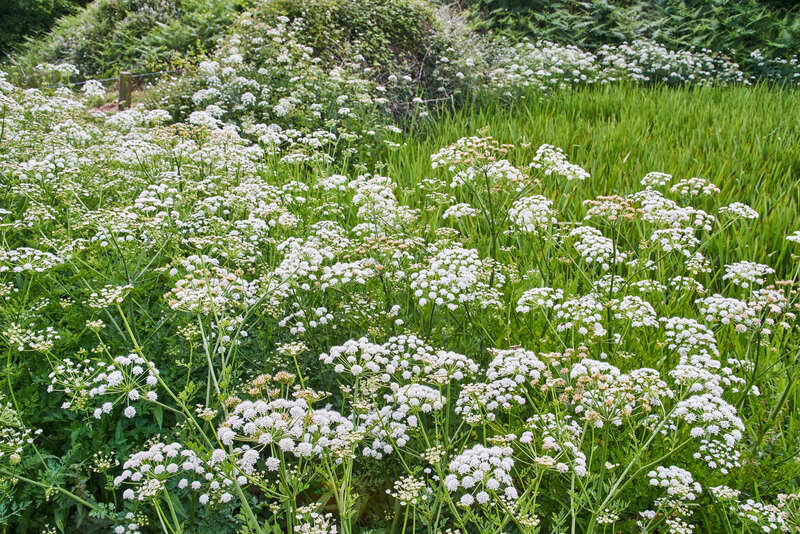Eco-Friendly Gardening for Climate Action
Posted on 05/02/2025
Eco-friendly gardening is an effective and impactful way to contribute to climate action. By making mindful gardening choices, you can reduce your carbon footprint, sustain local ecosystems, and make a positive difference. This article will delve into eco-friendly gardening practices, offer tips, and highlight the pros and cons, takeaways, and a solid conclusion on why adopting these practices is crucial.
Why Eco-Friendly Gardening Matters
Climate change is one of the most pressing global challenges, and each of us can play a part in mitigating its effects. Gardens, although small, can collectively become powerful tools in the fight against climate change. By conserving water, enriching the soil, and promoting biodiversity, eco-friendly gardening practices foster healthier ecosystems and reduce greenhouse gas emissions.

Basic Principles of Eco-Friendly Gardening
Water Conservation
Water is a precious resource. Implementing water-conserving techniques in your garden can drastically reduce consumption. Consider using drip irrigation systems, rain barrels, and xeriscaping to cultivate a garden that thrives without heavy water usage.
Soil Health
Healthy soil not only supports robust plant growth but also captures carbon from the atmosphere. Composting, mulching, and minimizing soil disturbance are effective ways to enhance soil fertility and structure.
Plant Selection
Choosing native plants is a cornerstone of eco-friendly gardening. Native plants are adapted to local conditions, requiring less water and maintenance. They also support local wildlife, providing habitats and food sources for birds, insects, and other critters.
Perennial Plants
Perennial plants return year after year, reducing the need for replanting and disturbance. These plants often have deeper root systems that help soil retain moisture and prevent erosion.
Pesticide and Fertilizer Use
Chemical pesticides and fertilizers can harm the environment by contaminating water supplies and disrupting local ecosystems. Opt for organic or natural alternatives, such as neem oil and compost tea, to keep your garden healthy.
Integrated Pest Management (IPM)
IPM involves using a variety of methods to manage pests, such as physical barriers, beneficial insects, and crop rotation. This reduces reliance on harmful chemicals and promotes a balanced ecosystem.
Implementing Eco-Friendly Gardening Practices
Composting
Composting recycles organic waste into nutrient-rich soil. Kitchen scraps, grass clippings, and leaves can be transformed into compost, reducing landfill waste and boosting soil health.
Mulching
Mulch helps retain soil moisture, suppress weeds, and regulate soil temperature. Organic mulches, such as straw and wood chips, decompose over time, adding nutrients to the soil.
Edible Gardening
Growing your own fruits, vegetables, and herbs reduces the carbon footprint associated with food transportation. It also provides fresh, pesticide-free produce.
Pros and Cons of Eco-Friendly Gardening
Pros
- Environmental Benefits: Reduces carbon footprint, conserves water, and enhances biodiversity.
- Cost-Effective: Lowers the need for chemical fertilizers and pesticides.
- Healthier Plants and Food: Promotes robust plant growth and provides nutritious, chemical-free produce.
- Supports Local Wildlife: Provides habitats and food sources for bees, butterflies, and birds.
Cons
- Initial Effort: Requires planning and investment in eco-friendly tools and materials.
- Learning Curve: Might need time to learn and implement new practices effectively.
- Maintenance: Regular upkeep is necessary to ensure the garden remains healthy and sustainable.
Tips for Successful Eco-Friendly Gardening
- Start Small: Begin with manageable projects and gradually expand your eco-friendly gardening efforts.
- Use Recycled Materials: Repurpose old containers, tools, and materials to reduce waste.
- Educate Yourself: Stay informed about the latest eco-friendly gardening techniques and trends.
- Join a Community: Connect with local gardeners to share knowledge, resources, and support.

Takeaways
Eco-friendly gardening is a powerful way to take climate action on a small scale. By conserving water, promoting soil health, and reducing chemical use, gardeners can make a significant positive impact on the environment. Although it requires effort and education, the benefits far outweigh the drawbacks, offering a sustainable and rewarding gardening experience.
Conclusion
Eco-friendly gardening aligns with the broader goals of climate action by promoting sustainable practices that benefit the environment. By adopting these methods, gardeners contribute to reducing greenhouse gas emissions, conserving natural resources, and fostering biodiversity. Whether you're a seasoned gardener or just starting out, embracing eco-friendly practices is a gratifying and impactful way to make a difference.
Latest Posts
Creating a Serene Zen Garden Oasis
Perfect Mow Timing: How Often to Trim Your Lawn?



